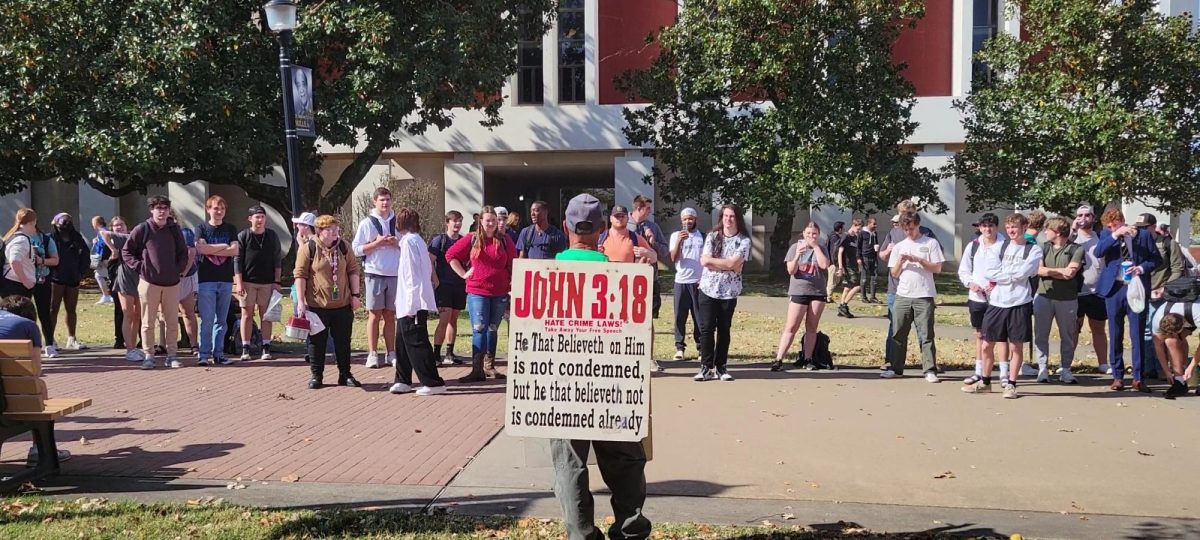For many students, colleges and universities represent the first real opportunity to independently interact with a variety of perspectives in the “marketplace of free ideas”. No matter the stance, we have all encountered ideas that have supported, countered, or even flat-out rejected our own.
Protests and student activism are ingrained in academic—and cultural—history.
However, the marketplace of free ideas is just that: a marketplace of free ideas. And on public campuses such as ours, that freedom is extended to all, even those who seek to come to campuses with controversial and incendiary messages.
Free speech zones have existed far before many of us were born, emerging in the 1980s and 90s. Originally meant as a way to balance public discourse and class disruption, it has since itself become a hotly contested topic.
During the first two years of the pandemic, there weren’t many visitors to Murray State’s campus; even fewer sought to engage students on highly politicized topics such as abortion or religion. Perhaps that’s why there’s so much commotion when they do arrive.
No matter the stance, their presence is like a powderkeg on an otherwise sleepy campus: an emotional, thought-provoking and conversational powderkeg.
The true conversations are hardly with the protesting organization; more often than not they will talk over anyone who tries, using abrasive and bigoted language to outshock the other. When that doesn’t work, they’ll ignore the person entirely to further enrage the gathering crowd. Rather, they’re with each other.
And in an era where face-to-face conversations have been stunted for the last three years, it’s not a large feat to do so.
However, it is through these same spectacles that we learn how to talk to one another beyond a screen.
When a religious demonstrator came to spew hate on campus, students united to drown it out through music and satire. And amongst the crowd, people spoke of their own experiences with religion—be it Christianity, Judaism or none at all.
The marketplace of free ideas often means encountering rhetoric that falls against your moral beliefs; it’s part of the price of freedom. But it is also through these experiences that you learn to fortify your own ideals and when to disengage entirely.
If iron sharpens iron, then so do ideas. Where else can it be done but here?
Ideas need conversation like a fire needs oxygen to burn. Setting philosophy aside, there are few warning signs for the many stances we will encounter in life. Some will pass you by in a blink; some won’t.
College communities provide a unique training ground to sharpen each of our abilities to learn when and how to explain what you believe in—and how to ignore others who only want to detract.




























































































